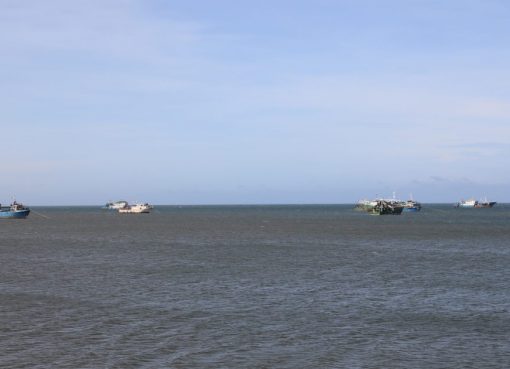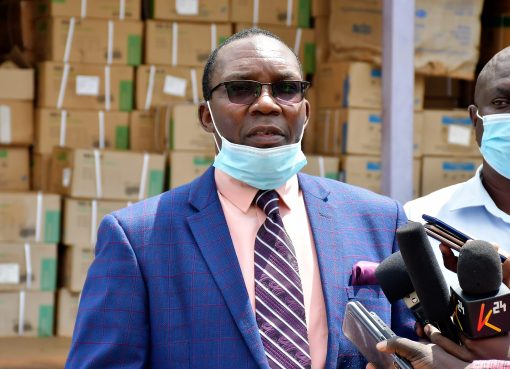Members of the public and stakeholders in the financial sector have been given an opportunity by the government to give their input in the Sectoral Budget for the Financial Year 2022/2023 and Medium Term Budget proposals.
The three-day event will enable Kenyans to engage with the respective sectors on the achievements made towards the implementation of previous planned programmes for the last three years and to prioritise policies, strategies, programmes and their corresponding budgetary allocation, for consideration in the next Financial Year and Medium Term Budget.
Speaking at the official opening of the public hearings of the Financial Year 2022/ 23 and Medium Term Budget Proposals at the Kenyatta International Convention Centre, today, the Cabinet Secretary (CS), National Treasury and Planning, Amb. Ukur Yatani, said the proposals will be consolidated into a National Budget that will be submitted to Parliament early in 2022.
He said the exercise is important as it will give Kenyans an opportunity of shaping and influencing decisions, on the sectoral budget proposals and to interrogate the government’s scorecard, on the previously approved priorities, their budgetary allocation and to measure the deliverable outcomes.

The FY 2022/2023 and Medium Term Budget, is framed against a background of projected global economic recovery, as a result of the Covid pandemic, whose projection recovery, is supported by the ongoing vaccinations, additional fiscal support and monetary easing.
The CS said before the emergence of the Covid-19 pandemic in March 2020, the government’s Medium Term Plan had prioritized the ‘Big Four’ Agenda and the macroeconomic stability as envisioned under the MTPIII, which are the government’s priorities in the management of economic affairs of the Country.
“We shall focus on measures to expand the revenue base while at the same time rationalizing government operating expenditure, under a tight fiscal framework, to contain the debt burden and debt servicing costs,” he added.
He disclosed that Kenya’s leading indicators for the economy are geared towards a robust economic recovery, following the reopening of the services sectors and a stronger global demand.
Regarding the country’s overall economy, Yatani announced that Kenya’s economy contracted by 0.3 per cent in 2020 compared to a growth of 5.0 in 2019, singling out agricultural production, construction, mining, health and financial and insurance sectors, as those that recorded strong positive growth, thereby, moderating the overall contraction of the economy.
“The continued implementation of the strategic priorities of the government under the ‘Big Four’ Agenda, economic recovery strategy and other key priority programmes and the prevailing macroeconomic stability, economic growth for the domestic economy, is projected to expand by 6.0 per cent in 2021 from a contraction of 0.3 per cent in 2020,” he said.
He noted that despite the covid-19 pandemic, the country managed to preserve macro-economic stability by maintaining low and stable inflation, interest rates and a competitive exchange rates and assured of Kenya’s commitment to fiscal consolidation path, in order to reduce and stabilize growth in public debt.
“The fiscal deficit is projected to decline from 8.4 per cent of Gross Domestic Product in the FY 2020/2021 to 7.4 per cent in the FY 2021/22 and further to 5.7 in FY 2022/23”, he assured.
The CS also announced that the country’s revenue collection in the FY 2022/2023 is projected at 17.5 per cent of the Gross Domestic Product, whose performance will be underpinned by the on-going reform in tax and revenue administration and the implementation of economic recovery strategy.
The Chairperson of the Budget and Appropriations Committee in the National Assembly, Kanini Kega, maintained that the discussions were not only to fulfill the requirements of Article 201 of the 2010 Constitution, but to listen to the concerns and proposals of the public.
He lauded the sector working groups for their dedication, commitment and enthusiasm to deliver the sector budget proposals in a tight budget calendar.
“It is, therefore, imperative that the output of this public participation exercise are considered and factored into, not just the 2022 Budget Policy Statement, but also prioritized with the final budget proposal,” he said.
Kega commented on the economic recovery of the country from the Covid-19 crisis, citing a myriad of challenges such as the rising cost of living, occasioned by high food and fuel prices and uncertainties associated by rising political temperatures, that have subdued the various investments in the Country.
He further added that investors are practicing with the report of ‘wait and see’ approach and asked the government to mitigate these challenges that may erase the gains made so far.
“I hope that the sector working groups have had a realistic assessment of the economy and this budget will serve to revamp the livelihoods of our people without overburdening them,” Kega said.
He urged that the discussions on government expenditure should find ways of reducing the public debt and challenged the sector working groups to undertake proper project evaluation and prioritization, to ensure that resources are availed or allocated to viable, realistic and high impact projects.
The Chairperson noted that the government should allocate resources without duplication, citing the devolved functions of health, agriculture and infrastructure, which are funded by the government.
He considered the Budget as a powerful tool that is used by the government to influence the lives of the people and the business environment and lauded the private sector’s role in the economic growth of the country.
“It is my expectation that through the 2022/23 Budget the government shall continue to support and promote youth empowerment initiatives, to ensure that our youth are continuously engaged in productive and enumerative economic activities.
Further, he added that the ongoing efforts of revamping the economy through the ‘Big 4’ Agenda, including food security, affordable housing, manufacturing and affordable healthcare are noteworthy and need to be up-scaled with the aim of absorbing more of the youth.
The revenue and expenditure projection contained in the 2021 Review and Outlook Paper, will be reviewed to reflect the obtaining macro-economic environment in both the international and domestic scenes through the Budget Policy Statement, that shall be submitted to Parliament by 30th November 2021.
By Michael Omondi and Grace Buliba




